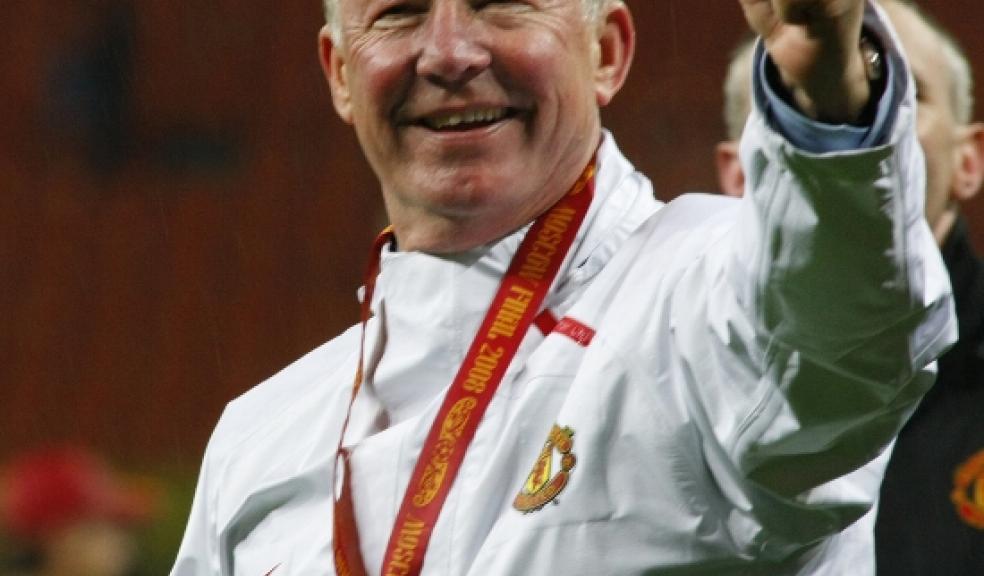
Sir Alex Ferguson announces his Manchester United retirement
Often described as the greatest manager the British game has seen, Sir Alex Ferguson will retire at the end of the season at the age of 71, after 55 years in football as a player and manager.
The club announced the decision this morning.
In a remarkably distinguished managerial career, Ferguson won 49 trophies, a British record. He led Manchester United to 13 Premier League titles, five FA Cup victories and two Champions League titles.
The Glasgow-born Alex Ferguson began as an amateur player for Scottish side, Queen's Park at the age of 16 in 1957 while working on the shipyards. A goal scoring striker, he went on to play for St Johnstone and Dunfermline where he signed professional terms. He was given a dream move to Rangers in 1967, went on to join Falkirk and ended his career at Ayr United.
But his playing career pales in comparison to his extraordinary managerial achievements which began at East Stirlingshire in 1974 where he is said to have quickly developed his tough, disciplinarian approach. He was just 32 at the time, youthful for a manager. After a little over a year, he left to join St Mirren who he transformed from an underachieving side, struggling in Division Two, to Division One champions in 1977. He marshalled a young side, developing an attacking footballing style that would be a trademark of his teams thereafter.
Despite his success, St Mirren sacked Ferguson in 1978 - the only club to do so. He became Aberdeen manager that year. After a difficult start, he went on to win three Scottish Premier League titles with the club, breaking the Celtic-Rangers hegemony. He won four Scottish Cups and the UEFA Cup Winners' Cup in 1983, sensationally defeating Bayern Munich on the way, and Real Madrid in the final.
Manchester United came knocking in 1986. A giant of a club, sitting 21st in the league table and in the doledrums after a succession of high profile managers had failed to win the English league title since the 1966/67 season under Sir Matt Busby.
Ferguson inherited a group of talented players such as Bryan Robson, Norman Whiteside, Paul McGrath and Mark Hughes but coaching and cultural changes were needed. Despite making some high profile player signings, instilling a new discipline and ridding the club of a drinking culture that pervaded the English game at the time, success did not come quickly. By the 1989/90 season there were calls for Ferguson to be sacked and rumours the club were on the verge of doing so, but they went on to win the FA Cup beating Crystal Palace after a replay.
Finally in 1992/93 Manchester United won their first Premier League title and ended 26 years without the English champions' crown. The signing of Eric Cantona from Leeds United was seen as the catalyst for the success. Midfielder Roy Keane, a man seemingly made in Fergie's image, arrived the following year as did the manager's first double - retaining the Premier League title and FA Cup. A second double followed two seasons later
A new wave of young players had emerged from the youth ranks, first Ryan Giggs, then Paul Scholes, Gary Neville, Nicky Butt and one David Beckham. Champions League success followed finally in 1998/99 in a memorable last gasp victory against Bayern Munich. A succession of Premier League titles were won either side of the millennium, with only Arsenal and subsequently Chelsea able to interrupt and challenge the Red Devils for the honour of the nation's best.
A second Champions League title arrived in 2007/08 and as rivals Manchester City emerged as rich pretenders to the Premier League crown, United were again top dogs in 2010/11 and comfortably wrestled the title back from the club Fergie once described as "the noisy neighbours" this season.
A fitting way to bow out then, though the rumours of the retirement that emerged overnight had taken the footballling world by surprise.
Today, Sir Alex Ferguson paid tribute to the club, the fans, staff and his family. He said: "The decision to retire is one that I have thought a great deal about. It is the right time.
"To the fans, thank you. The support you have provided over the years has been truly humbling. It has been an honour and an enormous privilege to have had the opportunity to lead your club and I have treasured my time as manager of Manchester United."
Ferguson who will stay on at the club as a director and club ambassador will take a role in the selection of his successor. Among the contenders is Jose Mourinho, who is set to leave Real Madrid although he has been strongly linked with a return to Chelsea. Everton's long serving boss, David Moyes, close to Ferguson, is another strong bet as is the talented Borussia Dortmund coach Jurgen Klopp.
Whoever it is they will have the hardest possible act to follow.













